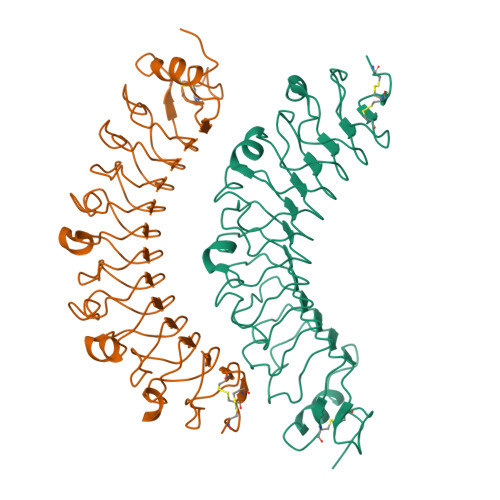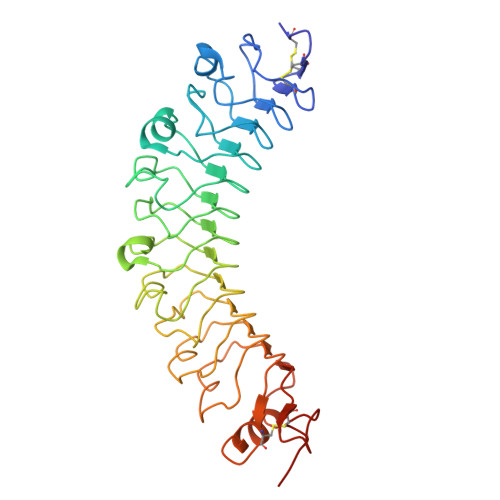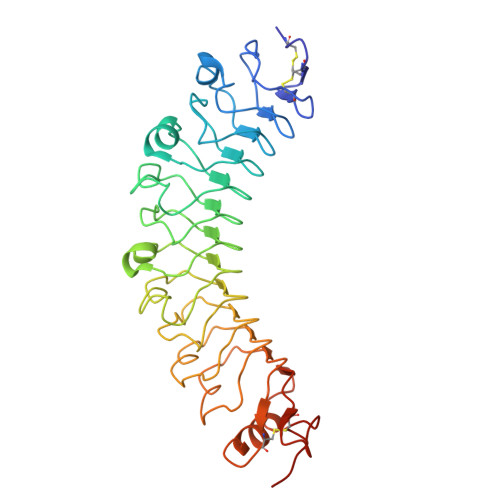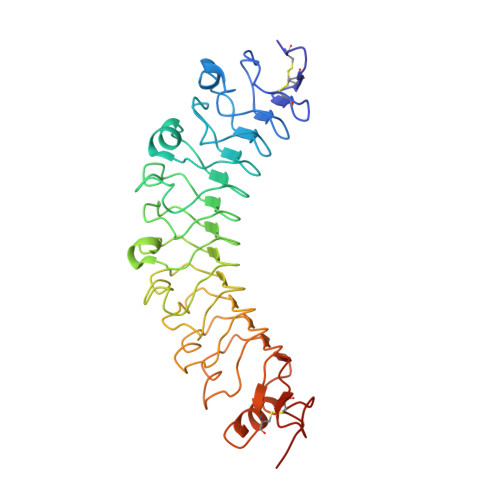Flrt Structure: Balancing Repulsion and Cell Adhesion in Cortical and Vascular Development.
Seiradake, E., Del Toro, D., Nagel, D., Cop, F., Hartl, R., Ruff, T., Seyit-Bremer, G., Harlos, K., Border, E.C., Acker-Palmer, A., Jones, E.Y., Klein, R.(2014) Neuron 84: 370
- PubMed: 25374360
- DOI: https://doi.org/10.1016/j.neuron.2014.10.008
- Primary Citation of Related Structures:
4V2A, 4V2B, 4V2C, 4V2D, 4V2E - PubMed Abstract:
FLRTs are broadly expressed proteins with the unique property of acting as homophilic cell adhesion molecules and as heterophilic repulsive ligands of Unc5/Netrin receptors. How these functions direct cell behavior and the molecular mechanisms involved remain largely unclear. Here we use X-ray crystallography to reveal the distinct structural bases for FLRT-mediated cell adhesion and repulsion in neurons. We apply this knowledge to elucidate FLRT functions during cortical development. We show that FLRTs regulate both the radial migration of pyramidal neurons, as well as their tangential spread. Mechanistically, radial migration is controlled by repulsive FLRT2-Unc5D interactions, while spatial organization in the tangential axis involves adhesive FLRT-FLRT interactions. Further, we show that the fundamental mechanisms of FLRT adhesion and repulsion are conserved between neurons and vascular endothelial cells. Our results reveal FLRTs as powerful guidance factors with structurally encoded repulsive and adhesive surfaces.
Organizational Affiliation:
Division of Structural Biology, Wellcome Trust Centre for Human Genetics, University of Oxford, Roosevelt Drive, OX3 7BN Oxford, UK.

















